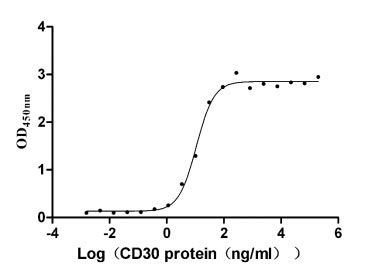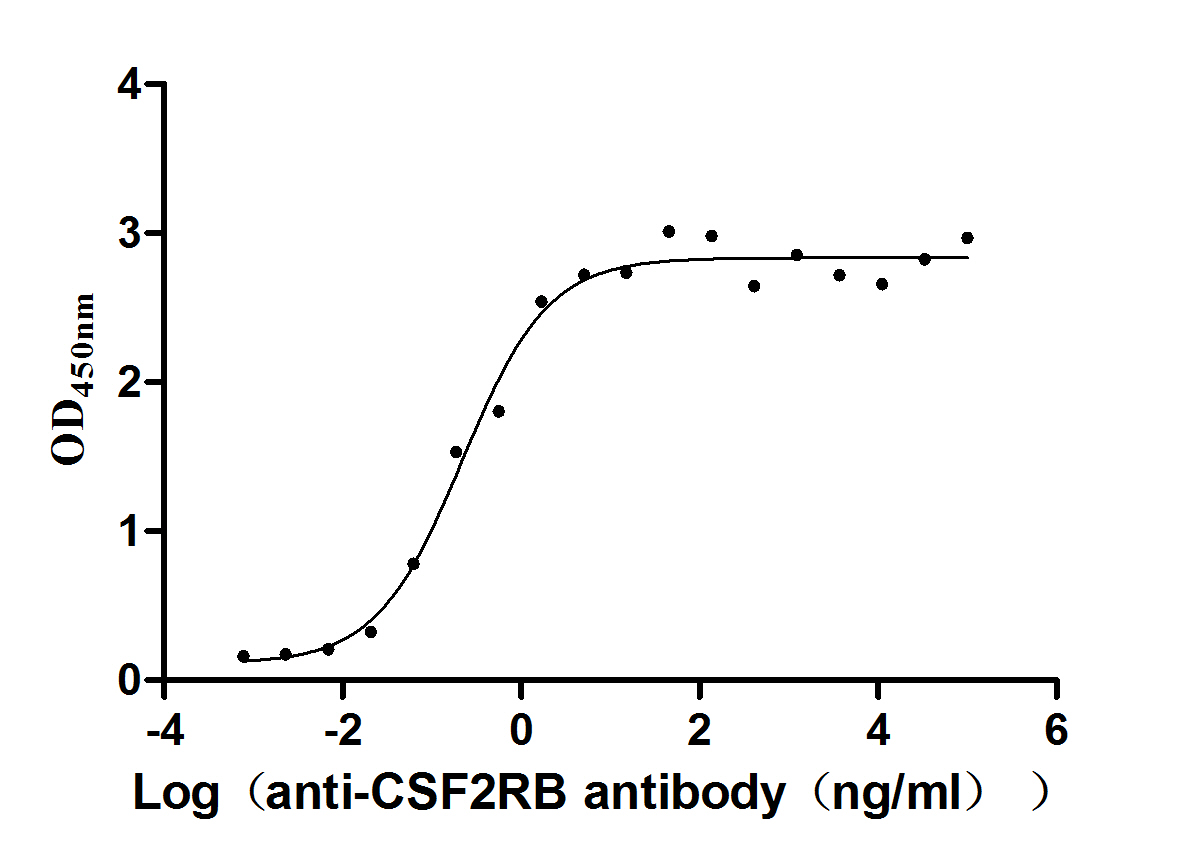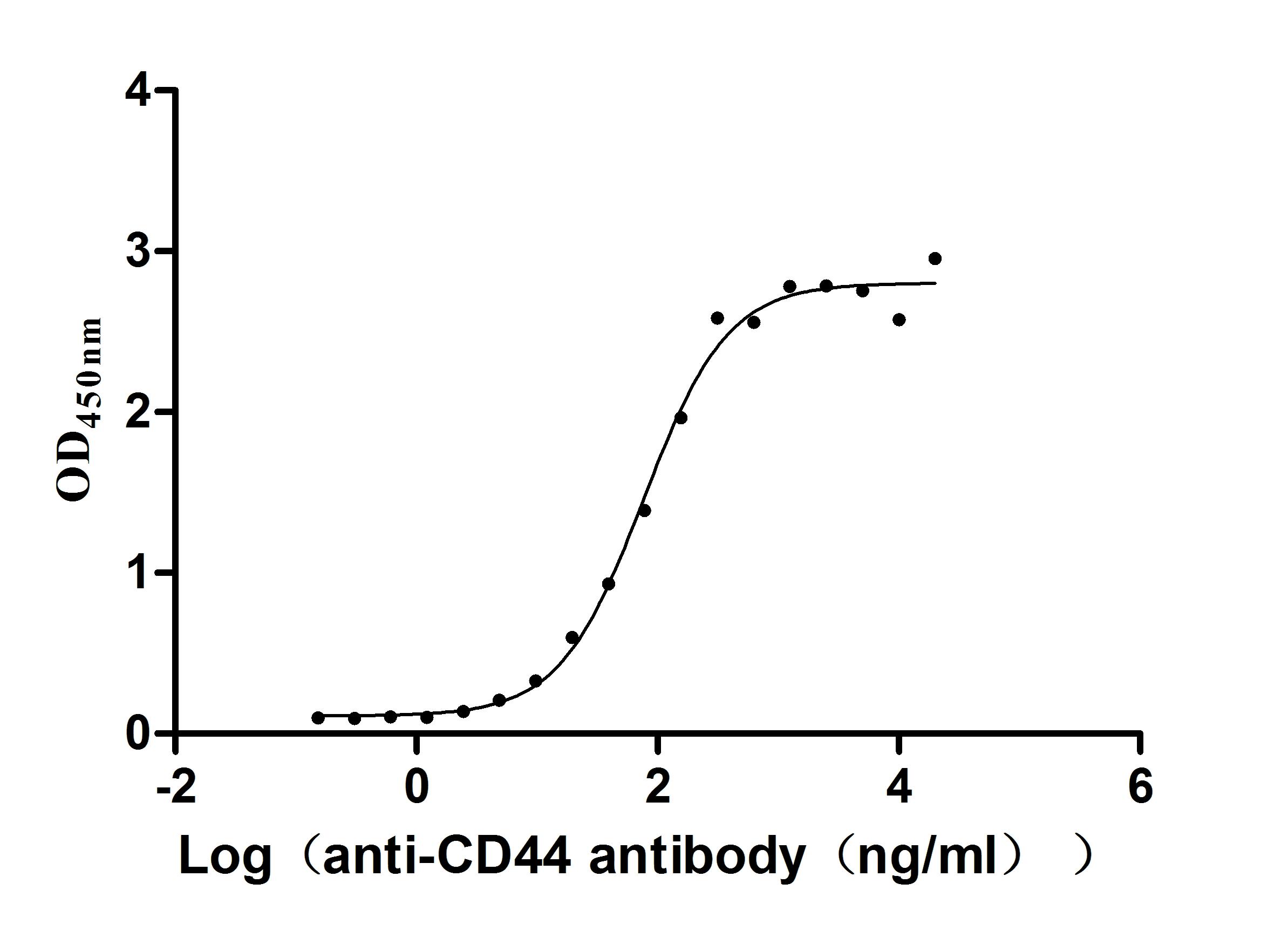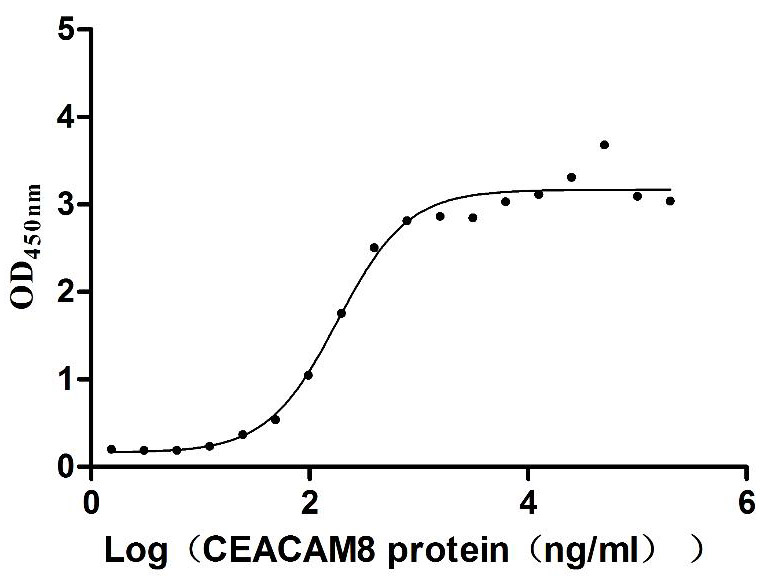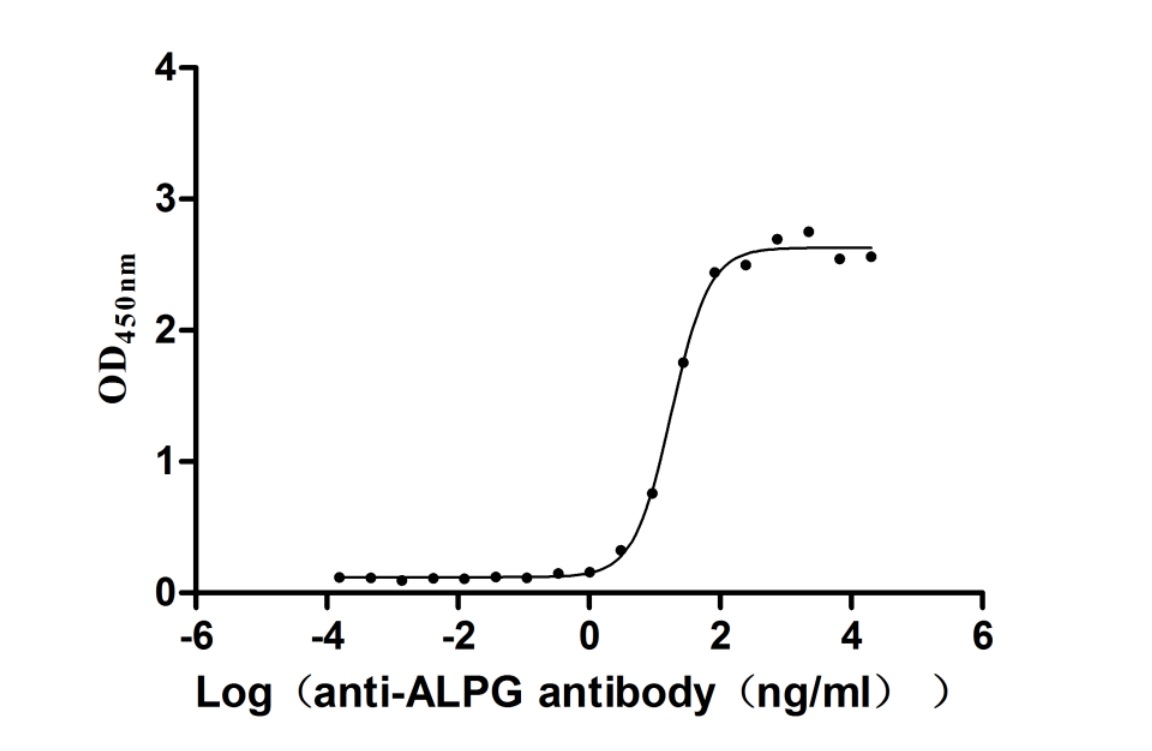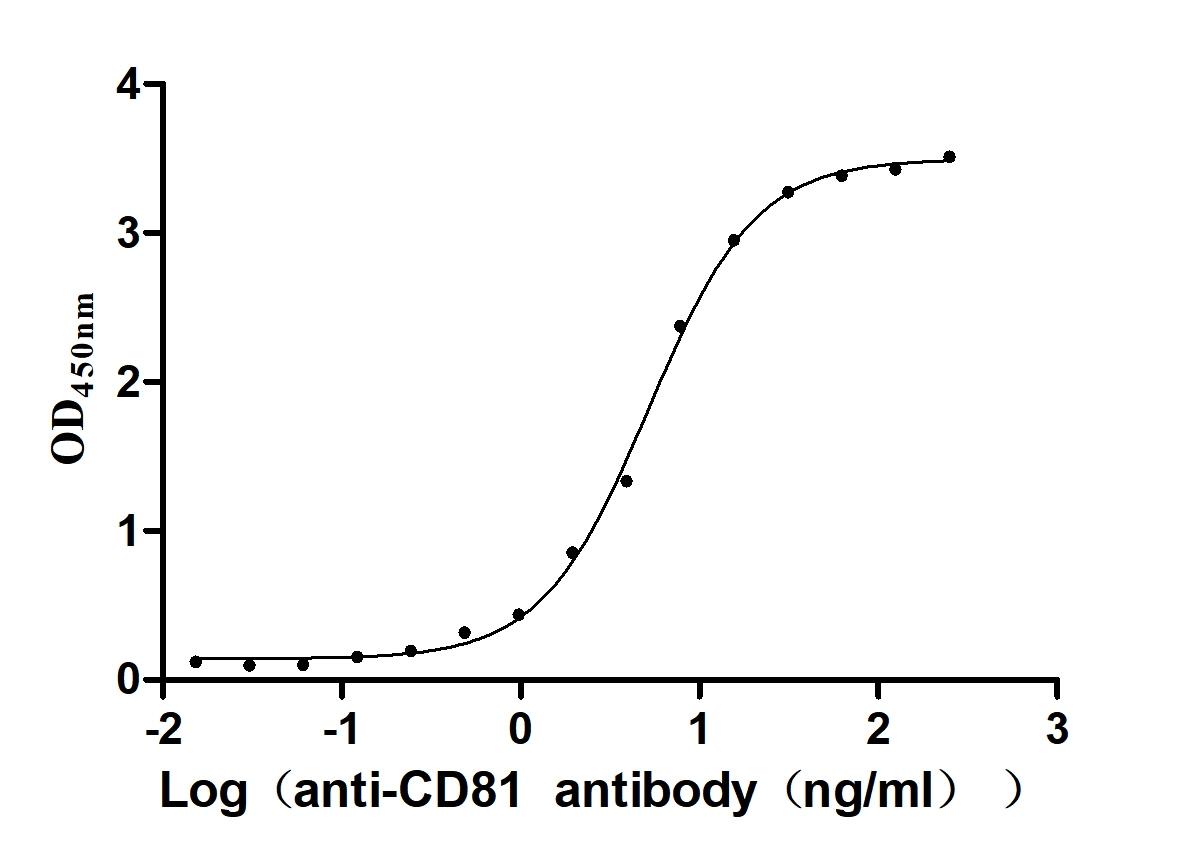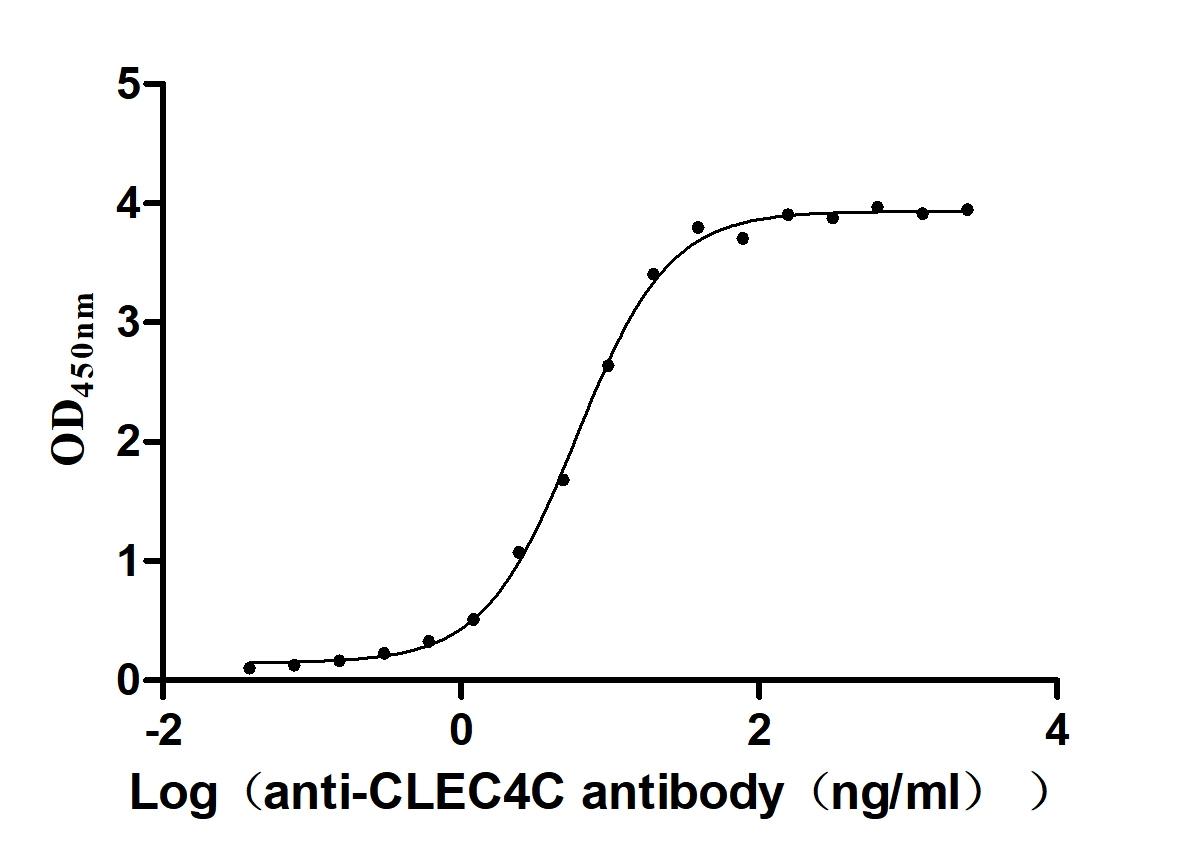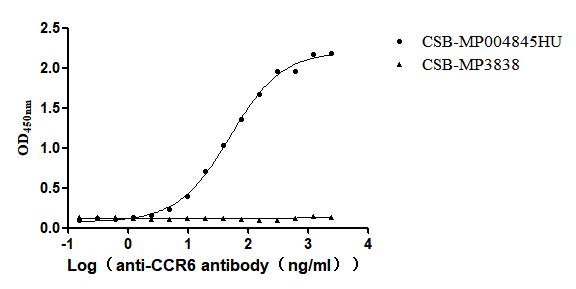Recombinant Human Major facilitator superfamily domain-containing protein 8 (MFSD8), partial
-
中文名称:人MFSD8重组蛋白
-
货号:CSB-YP844087HU
-
规格:
-
来源:Yeast
-
其他:
-
中文名称:人MFSD8重组蛋白
-
货号:CSB-EP844087HU
-
规格:
-
来源:E.coli
-
其他:
-
中文名称:人MFSD8重组蛋白
-
货号:CSB-EP844087HU-B
-
规格:
-
来源:E.coli
-
共轭:Avi-tag Biotinylated
E. coli biotin ligase (BirA) is highly specific in covalently attaching biotin to the 15 amino acid AviTag peptide. This recombinant protein was biotinylated in vivo by AviTag-BirA technology, which method is BriA catalyzes amide linkage between the biotin and the specific lysine of the AviTag.
-
其他:
-
中文名称:人MFSD8重组蛋白
-
货号:CSB-BP844087HU
-
规格:
-
来源:Baculovirus
-
其他:
-
中文名称:人MFSD8重组蛋白
-
货号:CSB-MP844087HU
-
规格:
-
来源:Mammalian cell
-
其他:
产品详情
-
纯度:>85% (SDS-PAGE)
-
基因名:MFSD8
-
Uniprot No.:
-
别名:Ceroid-lipofuscinosis neuronal protein 7; CLN7; Major facilitator superfamily domain-containing protein 8; MFSD8; MFSD8_HUMAN
-
种属:Homo sapiens (Human)
-
蛋白长度:Partial
-
蛋白标签:Tag type will be determined during the manufacturing process.
The tag type will be determined during production process. If you have specified tag type, please tell us and we will develop the specified tag preferentially. -
产品提供形式:Lyophilized powder
Note: We will preferentially ship the format that we have in stock, however, if you have any special requirement for the format, please remark your requirement when placing the order, we will prepare according to your demand. -
复溶:We recommend that this vial be briefly centrifuged prior to opening to bring the contents to the bottom. Please reconstitute protein in deionized sterile water to a concentration of 0.1-1.0 mg/mL.We recommend to add 5-50% of glycerol (final concentration) and aliquot for long-term storage at -20℃/-80℃. Our default final concentration of glycerol is 50%. Customers could use it as reference.
-
储存条件:Store at -20°C/-80°C upon receipt, aliquoting is necessary for mutiple use. Avoid repeated freeze-thaw cycles.
-
保质期:The shelf life is related to many factors, storage state, buffer ingredients, storage temperature and the stability of the protein itself.
Generally, the shelf life of liquid form is 6 months at -20°C/-80°C. The shelf life of lyophilized form is 12 months at -20°C/-80°C. -
货期:Delivery time may differ from different purchasing way or location, please kindly consult your local distributors for specific delivery time.Note: All of our proteins are default shipped with normal blue ice packs, if you request to ship with dry ice, please communicate with us in advance and extra fees will be charged.
-
注意事项:Repeated freezing and thawing is not recommended. Store working aliquots at 4°C for up to one week.
-
Datasheet :Please contact us to get it.
相关产品
靶点详情
-
功能:May be a carrier that transport small solutes by using chemiosmotic ion gradients.
-
基因功能参考文献:
- This study highlights a hierarchy of MFSD8 variant severity, predicting three consequences of mutation: (1) nonsyndromic localized maculopathy, (2) nonsyndromic widespread retinopathy, or (3) syndromic neurological disease. PMID: 28586915
- MFSD8 genetic testing should also be considered in patients with Rett like phenotype at onset and negative MECP2 mutation PMID: 25439737
- A mutation in MFSD8, c.472G>A (p.Gly158Ser), segregates with the disease phenotype in variant late infantile neuronal ceroid lipofuscinosis. PMID: 25270050
- In this study, we identified variants in MFSD8 as a novel cause of nonsyndromic autosomal recessive macular dystrophy with central cone involvement. PMID: 25227500
- This study showed that Gene disruption of Mfsd8 provides animal model for CLN7 disease. PMID: 24423645
- Expression and lysosomal targeting of CLN7 are reported. PMID: 20826447
- MFSD8 gene is involved in late-infantile-onset neuronal ceroid lipofuscinose;it was mapped to chromosome 4q28.1-q28.2. PMID: 17564970
- Results describe a novel mutation in the MFSD8 gene, responsible for neuronal ceroid lipofuscinoses, in a consanguineous Egyptian family PMID: 18850119
- Study contributes to a better molecular characterization of Italian NCL cases, and will facilitate medical genetic counseling in such families. PMID: 19177532
- CLN7/MFSD8 defects are not restricted to the Turkish population, as initially anticipated, but are a relatively common cause of NCL in different populations. PMID: 19201763
- Data show that neuronal ceroid lipofuscinosis in a Saudi family is due to a homozygous novel mutation in the most recently described NCL gene (MFSD8). PMID: 19277732
显示更多
收起更多
-
相关疾病:Ceroid lipofuscinosis, neuronal, 7 (CLN7); Macular dystrophy with central cone involvement (CCMD)
-
亚细胞定位:Lysosome membrane; Multi-pass membrane protein. Note=Sorting to lysosomes involves tyrosine- and/or dileucine-based motifs.
-
蛋白家族:Major facilitator superfamily
-
组织特异性:Expressed at very low levels in all tissues tested.
-
数据库链接:
HGNC: 28486
OMIM: 610951
KEGG: hsa:256471
STRING: 9606.ENSP00000296468
UniGene: Hs.480701
Most popular with customers
-
Recombinant Human Tumor necrosis factor ligand superfamily member 8 (TNFSF8), partial (Active)
Express system: Mammalian cell
Species: Homo sapiens (Human)
-
Recombinant Human Cytokine receptor common subunit beta (CSF2RB), partial (Active)
Express system: Mammalian cell
Species: Homo sapiens (Human)
-
Recombinant Macaca fascicularis CD44 antigen (CD44), partial (Active)
Express system: Mammalian cell
Species: Macaca fascicularis (Crab-eating macaque) (Cynomolgus monkey)
-
Recombinant Human Carcinoembryonic antigen-related cell adhesion molecule 6 (CEACAM6) (Active)
Express system: Mammalian cell
Species: Homo sapiens (Human)
-
Recombinant Human Alkaline phosphatase, germ cell type (ALPG) (Active)
Express system: Mammalian cell
Species: Homo sapiens (Human)
-
Recombinant Human CD81 antigen (CD81), partial (Active)
Express system: Mammalian cell
Species: Homo sapiens (Human)
-
Recombinant Macaca fascicularis C-type lectin domain family 4 member C(CLEC4C), partial (Active)
Express system: Mammalian cell
Species: Macaca fascicularis (Crab-eating macaque) (Cynomolgus monkey)
-
Recombinant Human C-C chemokine receptor type 6(CCR6)-VLPs (Active)
Express system: Mammalian cell
Species: Homo sapiens (Human)


